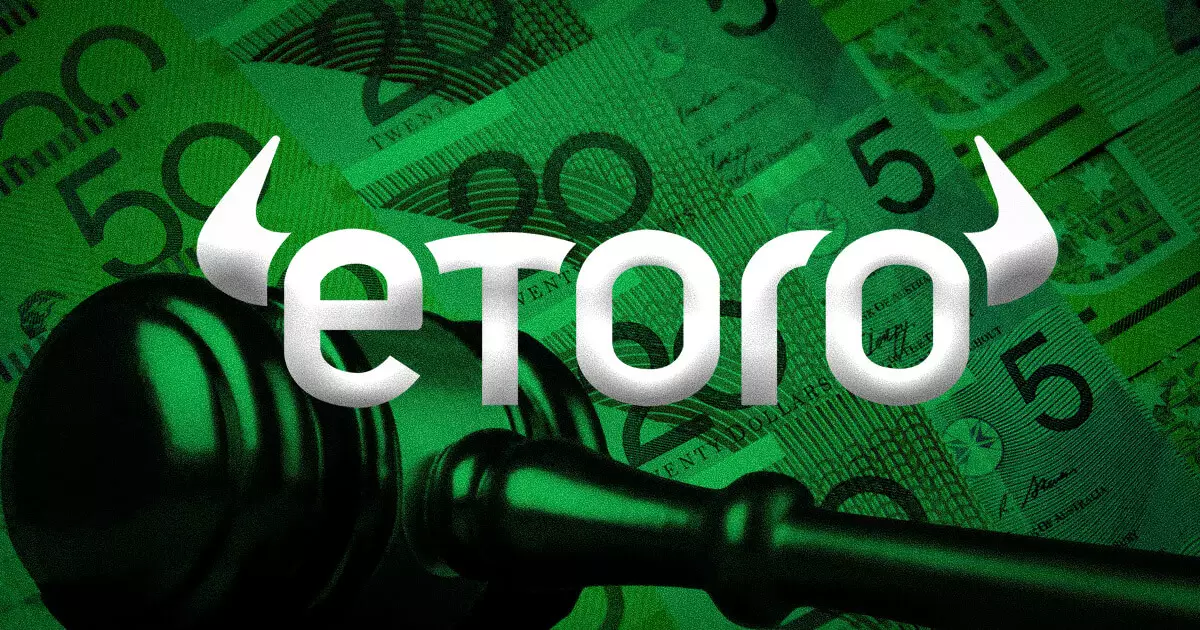The Australian Securities and Investments Commission (ASIC) has taken legal action against online trading platform eToro for allegedly violating financial regulations related to cryptocurrency derivative products. The ASIC lawsuit accuses eToro of contravening the design and distribution obligations under the Corporations Act 2001 between October 2021 and July 2023. The commission claims that eToro’s broad definition of its target market for Contract For Difference (CFD) products resulted in significant losses for two-thirds of CFD traders.
ASIC argues that CFDs pose a significant risk to retail clients, who may lose all their deposited funds. The commission emphasizes that CFD issuers, like eToro, are required to carefully define their target markets in compliance with design and distribution obligations. They cannot manipulate their target markets to fit existing client bases. CFDs are derivative products that allow buyers and sellers to profit from the difference between the opening and closing prices.
ASIC specifically accuses eToro of defining its CFD target market too broadly, including retail clients with medium-risk tolerance but no experience in trading or understanding of the risks involved. In response to the ASIC lawsuit, an eToro spokesperson confirmed that the allegations are being considered and that there is no impact on the company’s services or global business. The spokesperson also stated that eToro now operates with a revised target market determination for CFDs that addresses ASIC’s concerns.
Despite the allegations, eToro emphasizes its commitment to adhering to applicable rules and regulations in all jurisdictions where it operates. The company highlights its collaborative approach with regulators to ensure consumer protection while providing access to individual investors. eToro expresses its intention to continue operating in Australia and providing the best possible customer experience to its existing Australian users.
The Lawsuit’s Focus on Target Market Determinations
The central focus of the ASIC lawsuit against eToro revolves around the adequacy of the platform’s target market determinations. ASIC argues that eToro’s screening tests for retail investors were ineffective, allowing unsuitable investors to trade CFDs and exposing them to significant losses. CFDs offered by eToro allowed investors to speculate on the price movements of various assets, including cryptocurrencies, forex, commodities, and stocks. ASIC contends that CFDs are not suitable for most retail investors due to their complexity and leverage.
ASIC’s Previous Actions and Penalties
ASIC has previously taken administrative actions to protect consumers from high-risk CFD trading unsuited to their financial circumstances. The commission has issued stop orders against other entities, including Saxo Capital Markets and Mitrade Global Pty Ltd. During the period under scrutiny, eToro had approximately 30,000 retail clients trading CFDs. The majority of these clients experienced realized losses totaling over AUD 26 million. ASIC seeks penalties, compliance orders, and costs from eToro.
The ASIC lawsuit against eToro highlights the importance of proper target market determinations and compliance with financial regulations. It reflects the increasing regulatory scrutiny of cryptocurrency trading platforms worldwide to ensure investor protection and safeguard against potential risks.


Leave a Reply